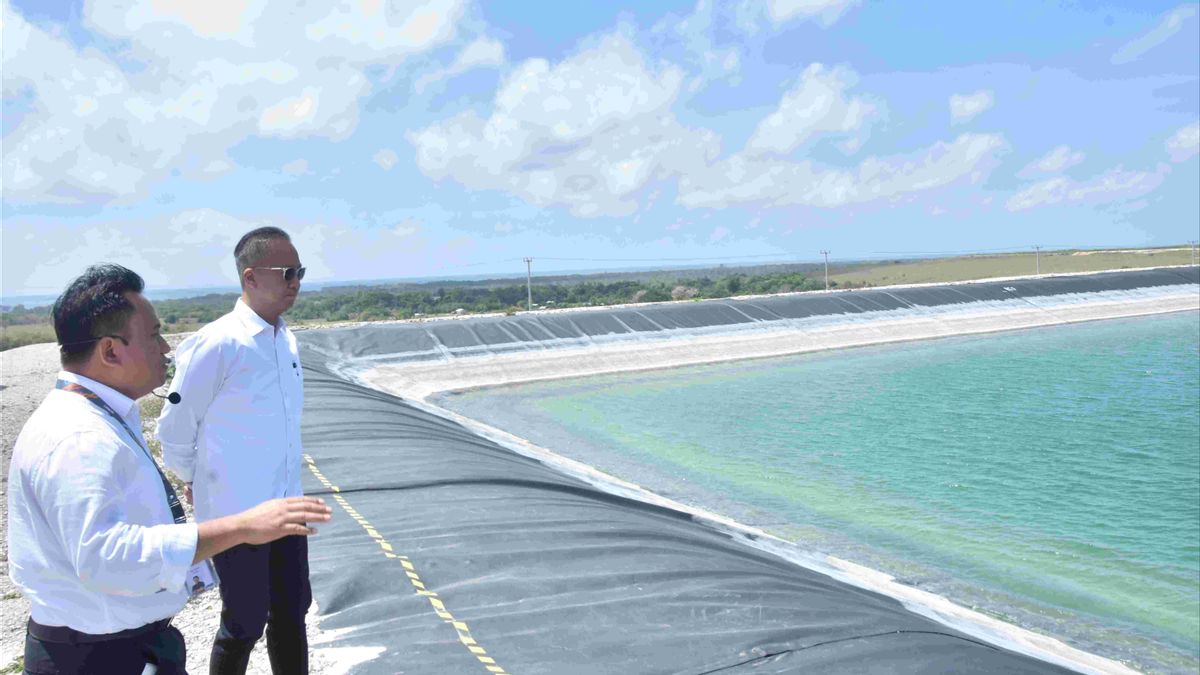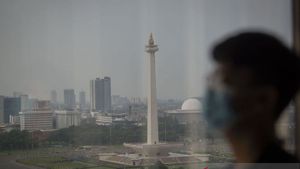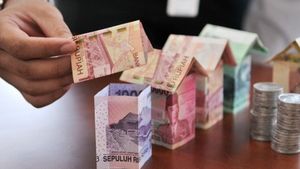BALI - Minister of Industry (Menperin) Agus Gumiwang Kartasasmita is committed to accelerating national sugar self-sufficiency with a sugar self-sufficiency target to accelerate the fulfillment of the sugar self-sufficiency target by 2028 by continuing to encourage increased productivity of the national sugar industry.
"The government is determined to accelerate the national sugar self-sufficiency with the sugar self-sufficiency target for consumption needs realized by 2028 and for industrial sugar needs by 2030," said Industry Minister Agus Gumiwang Kartasasmita through an official statement received by VOI, Wednesday, August 23.
Agus said, in order to accelerate national sugar self-sufficiency, the government has compiled a roadmap which includes an increase in sugarcane productivity by 93 tons per hectare (ha) through improvements in agricultural practices, the addition of a new land area of sugar cane plantations covering an area of 700,000 ha, as well as an increase in efficiency, utilization, and sugar factory capacity to reach an 11.2 percent redement.
"In addition, improving the welfare of sugarcane farmers, and increasing bioethenol production from sugarcane plants by at least 1.2 million kiloliters (kl) by 2030," he said.
As for now, the number of factories that are still actively producing cane processing into White Crystal Sugar (GKP) to fulfill direct consumption in Indonesia is 59 factories, consisting of 40 sugar factories owned by SOEs and 19 private sugar factories.
"Of these factories, the total national installed capacity reaches 324,350 TCD (tone cane per day)," said Agus.
Meanwhile, sugar factories that process raw sugar into Refined Crystal Sugar (GKR) to meet the raw materials needs of the food, beverage and pharmaceutical (maminfar) industry consist of 11 refined sugar factories (PGR) with a capacity of 5.016 million tons per year.
"We estimate that the national sugar demand for 2023 is around 6.8 million tons per year, consisting of the sugar needs for households of 3.4 million tons, and for the food and beverage industry of 3.4 million tons, which includes the need for sugar for small and medium industries (IKM) of 400-500 thousand tons," he said.
Agus said that the national sugar supply from the domestic sugar-based sugar industry production in 2023 based on the initial taxation results is estimated at 2.7 million tons.
Therefore, in order to increase productivity in order to meet the national sugar demand, it is necessary to balance it with the development of a new sugar industry that is integrated with sugarcane plantations, so that the government makes various efforts to develop the sugar industry by providing facilities and incentives, both fiscal and non-fiscal.
He appreciated PT Muria Sumba Manis (MSM) for establishing an integrated sugar factory in an area outside Java, precisely in Wanga Village, East Sumba, East Nusa Tenggara.
اقرأ أيضا:
Agus hopes that the increase in production contributed from the new sugar factory will reduce imports in line with the import substitution program initiated by the Ministry of Industry.
"We continue to strive to revitalize the sugar industry in the country to be more productive and competitive. To be able to meet domestic needs, domestic sugar factories are currently encouraged to be able to take advantage of modern technology," he added.
The English, Chinese, Japanese, Arabic, and French versions are automatically generated by the AI. So there may still be inaccuracies in translating, please always see Indonesian as our main language. (system supported by DigitalSiber.id)















